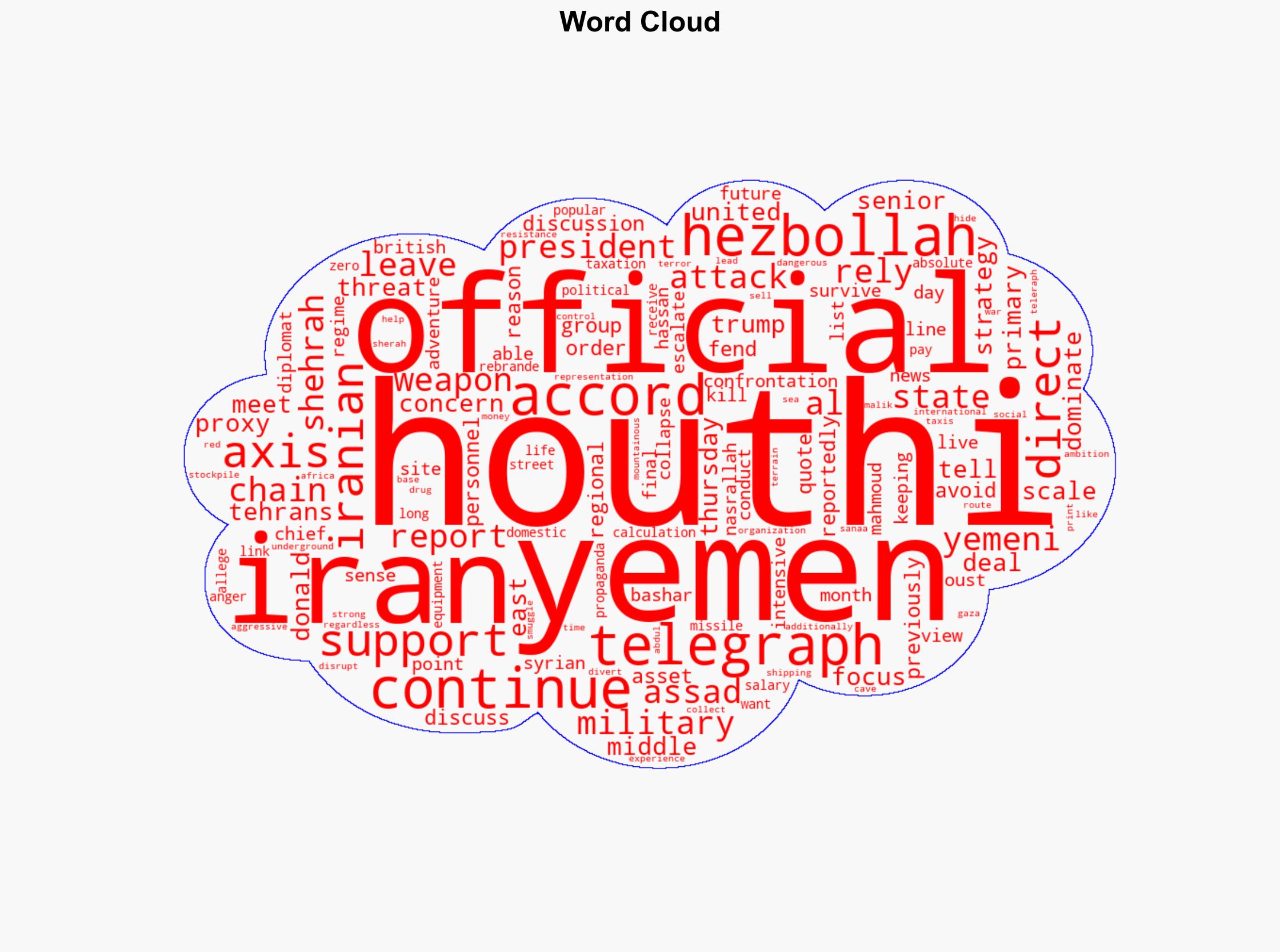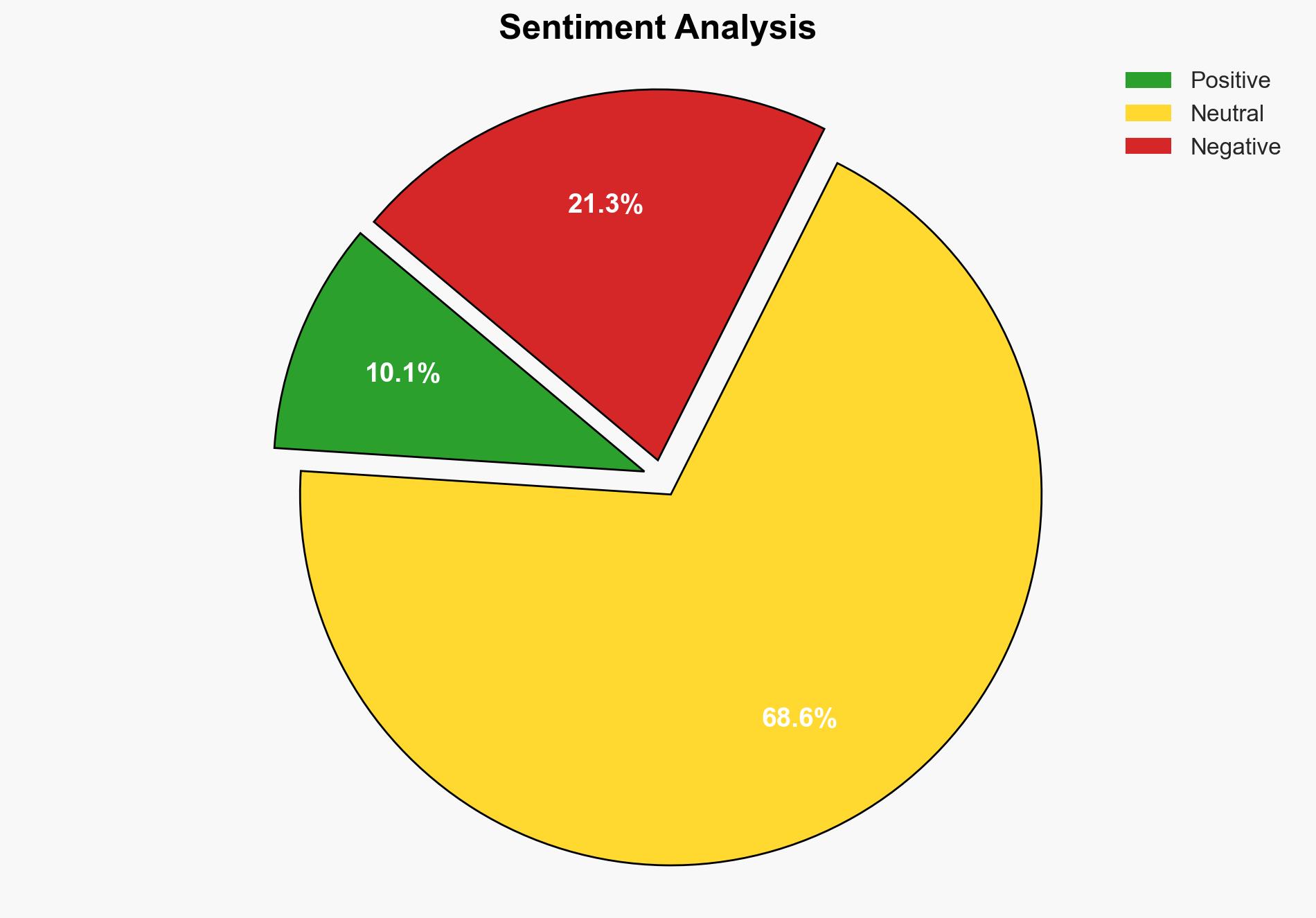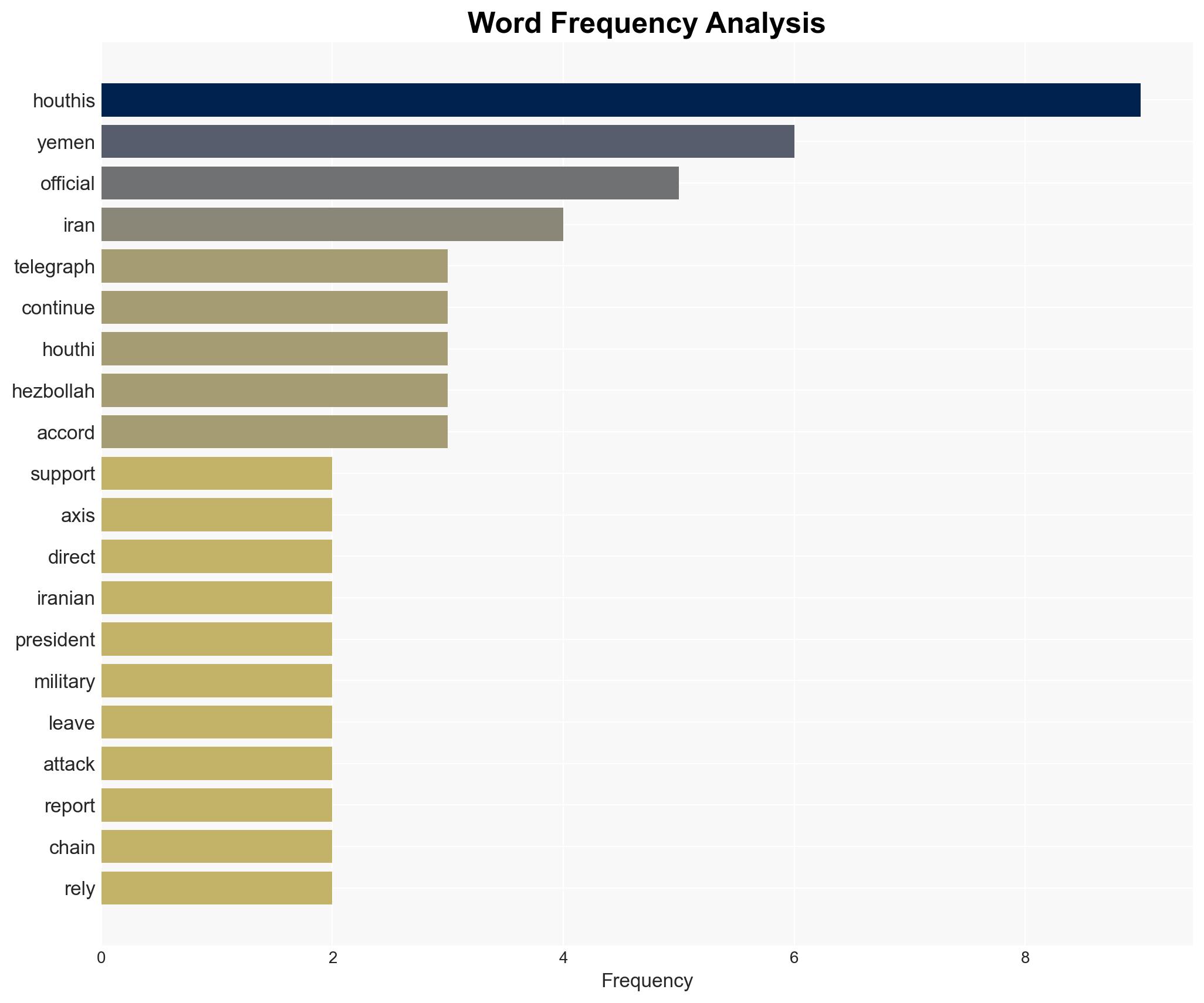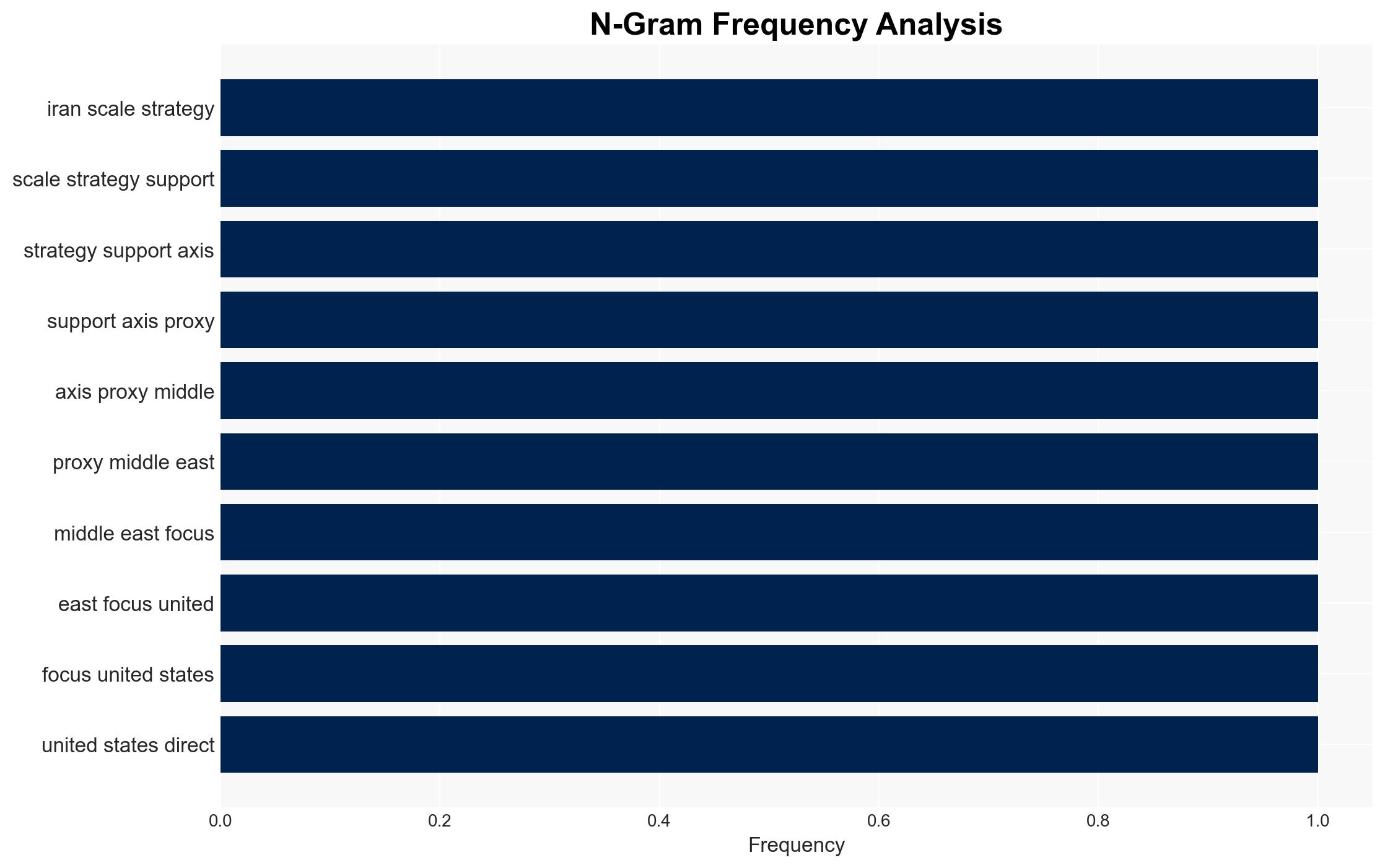Iran scales back its support of proxies to focus on Trump’s threat Iranian officials says – The Jerusalem Post
Published on: 2025-04-05
Intelligence Report: Iran scales back its support of proxies to focus on Trump’s threat Iranian officials says – The Jerusalem Post
1. BLUF (Bottom Line Up Front)
Iran is reportedly reducing its support for proxy groups in the Middle East to concentrate on perceived threats from the United States. This strategic shift involves withdrawing military personnel from Yemen and reassessing its support for groups like Hezbollah and the Houthis. The move aims to avoid direct confrontation and manage domestic and international pressures. Key recommendations include monitoring Iran’s strategic realignment and assessing its impact on regional stability.
2. Detailed Analysis
The following structured analytic techniques have been applied for this analysis:
General Analysis
Iran’s strategic recalibration reflects a response to heightened tensions with the United States, particularly under the administration of Donald Trump. The decision to scale back support for proxies such as the Houthis and Hezbollah suggests a prioritization of direct threats over regional influence. This shift may lead to a temporary weakening of these groups, potentially altering the balance of power in conflict zones like Yemen and Syria. The reliance on indirect strategies, such as rebranding and propaganda, indicates a nuanced approach to maintaining influence without overt military engagement.
3. Implications and Strategic Risks
The reduction in Iranian support for proxies poses several risks and implications:
- National Security: Potential destabilization of proxy groups could lead to increased violence and unpredictability in the region.
- Regional Stability: The withdrawal of Iranian support may embolden adversaries and create power vacuums, exacerbating conflicts in Yemen and Syria.
- Economic Interests: Disruption of international shipping routes, particularly in the Red Sea, could impact global trade and energy markets.
4. Recommendations and Outlook
Recommendations:
- Enhance intelligence monitoring of Iranian activities and proxy group dynamics to anticipate shifts in regional power structures.
- Strengthen diplomatic efforts to engage regional partners in mitigating potential conflicts arising from Iran’s strategic adjustments.
- Invest in technological advancements for surveillance and early warning systems to detect changes in proxy group activities.
Outlook:
Best-case scenario: Iran’s strategic shift leads to reduced regional tensions and opens pathways for diplomatic resolutions in conflict zones.
Worst-case scenario: Power vacuums created by the withdrawal of Iranian support result in escalated conflicts and humanitarian crises.
Most likely outcome: A period of instability as proxy groups adjust to reduced support, followed by potential realignments and new alliances.
5. Key Individuals and Entities
The report mentions significant individuals and organizations, including:
- Donald Trump
- Hassan Nasrallah
- Bashar al-Assad
- Mahmoud Shehrah
- Abdul Malik al-Houthi





